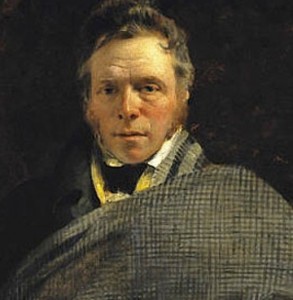James Hogg (1770-1835) noto come il “pastore di Ettrick” (pseudonimo con il quale pubblicò alcune sue opere) è nato in una fattoria vicino alla foresta di Ettrick e da contadino autodidatta si dedicò alla poesia e alla scrittura di canzoni e romanzi. Nella zona intorno al fiume Ettrick (Scozia) e nell’Ettrick forest sono ambientate molte delle ballate più antiche e magiche della Scozia
James Hogg fu una nota figura letteraria della scena edimburghese, (si trasferì ad Edimburgo nel 1810) :amico e collaboratore di Sir Walter Scott, ma quasi cinquantenne, visse più emarginato e incompreso.
Nel 1817 ebbe l’incarico dalla “Highland Society of London” di raccogliere i canti giacobiti a cavallo del Settecento, uno scorcio della storia della Scozia tra il 1689 e il 1746. Hogg trascrisse quelli che si tramandavano nelle campagne, e probabilmente molti li “riscrisse” o li compose ex-novo e li pubblicò in ‘ Jacobite Relics ‘
ARCHIVIO DIGITALE di
The Jacobite Relics of Scotland (Hogg, James)
[English translation]
James Hogg (1770-1835) known as the “Ettrick Shepherd”; (pseudonym with which he published some of his works) was born on a farm near the forest of Ettrick and as a self-taught farmer dedicated himself to poetry, writing songs and novels:
The area around the Ettrick River (Scotland) is rich in literary references, in Ettrick forest many of Scotland’s most ancient and magical ballads are set.
James Hogg was a well-known literary figure of the Edinburgh scene (moving to Edinburgh in 1810), a friend and collaborator of Sir Walter Scott, but at almost fifty, he was living more marginalized and misunderstood.
In 1817 Hogg was commissioned by the “Highland Society of London” to collect the Jacobite chants at the turn of the eighteenth century, a glimpse of the history of Scotland between 1689 and 1746. Hogg transcribed those that were handed down in the countryside, and probably many he “rewrote” them or composed them ex-novo.
- BANNOCKS O’ BEAR MEAL
- BIRNIEBOUZLE
- (THE) BONNY MOORHEN
- BOTH SIDES THE TWEED
- THE BATTLE OF KILLIECRANKIE
- COCK UP YOUR BEAVER
- ETTRICK LADY
- Flora MacDonald’s Lament
- Goodnight and Joy
- Lassie lie near me
- MY LOVE, SHE’S BUT A LASSIE YET
- QUEEN AMONG THE HEATHER
- Twa Bonnie Maidens
- WILL YE GO TO SHERIFFMUIR

